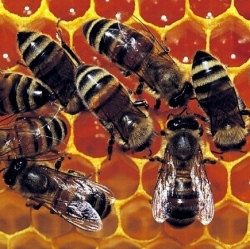
Scientists have discovered a central hub of brain cells that may put the brakes on a desire to eat. And switching on these neurons can stop feeding immediately, according to the Nature Neurosciences report. Researchers say the findings may one day contribute to therapies for obesity and anorexia.
Experts say this sheds light on the many complex nerve circuits involved in appetite control. Scientists from the California Institute of Technology suggest the nerve cells act as a central switchboard, combining and relaying many different messages in the brain to help reduce food intake. Using laser beams they were able to stimulate the neurons, leading to a complete and immediate stop to food consumption.
Prof David Anderson, lead author of the study told the BBC: "It was incredibly surprising. "It was like you could just flick a switch and prevent the animals from feeding." Researchers then used chemicals to mimic a variety of scenarios, including feelings of satiety, malaise, nausea and a bitter taste.
They found the neurons were active in all situations, suggesting they may be integral in the response to many diverse stimuli. The cells worked rapidly when mice had taken a full meal, indicating they may also play an important role in the prevention of over-eating.
